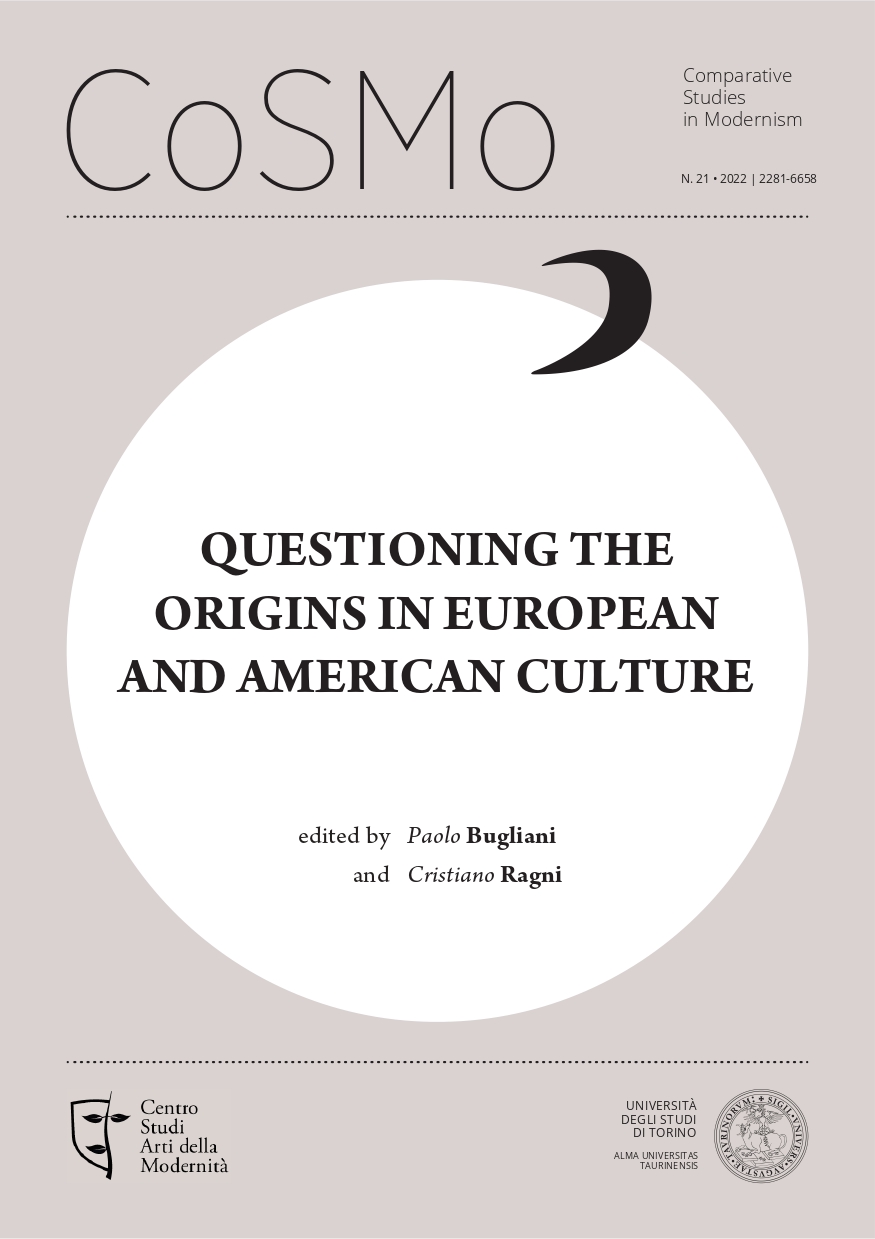L’ attrazione fatale dell’origine
Sul “principio come fine” in Pavese, Freud e Calvino
DOI:
https://doi.org/10.13135/2281-6658/6909Parole chiave:
Pavese, Freud, Calvino, Death Drive, Origins, Return, Oceanic FeelingAbstract
Taking its cue from an observation Pavese made in his private journal on the psychoanalytic notion of death drive, the first part of the article examines the manifold developments, throughout the 1920s, of Freud's insight in relation to a mysterious “need to restore an earlier state of things”. Particular attention in this regard will be given to the ideas of Todestrieb, identification, “oceanic feeling”, and prehistory. The article then proceeds to illustrate a number of significant analogies between Freud's treatment of this subject and Pavese's discourse on the category of “primeval”, showing at the same time how the two authors positioned themselves quite differently vis-à-vis what might be termed the fatal attraction of Origins. Lastly, it will be argued that the implicit critique to Pavese's “myth of return” developed by Calvino in the Cosmicomics and other texts from the mid-1960s is informed by assumptions on the psychological significance of the motif of Origins that are fundamentally compatible with those outlined by Freud.
Downloads
##submission.downloads##
Pubblicato
Fascicolo
Sezione
Licenza
Gli autori mantengono i diritti sulla loro opera e cedono alla rivista il diritto di prima pubblicazione dell'opera, contemporaneamente licenziata sotto una Licenza Creative Commons - Attribuzione che permette ad altri di condividere l'opera indicando la paternità intellettuale e la prima pubblicazione su questa rivista.







